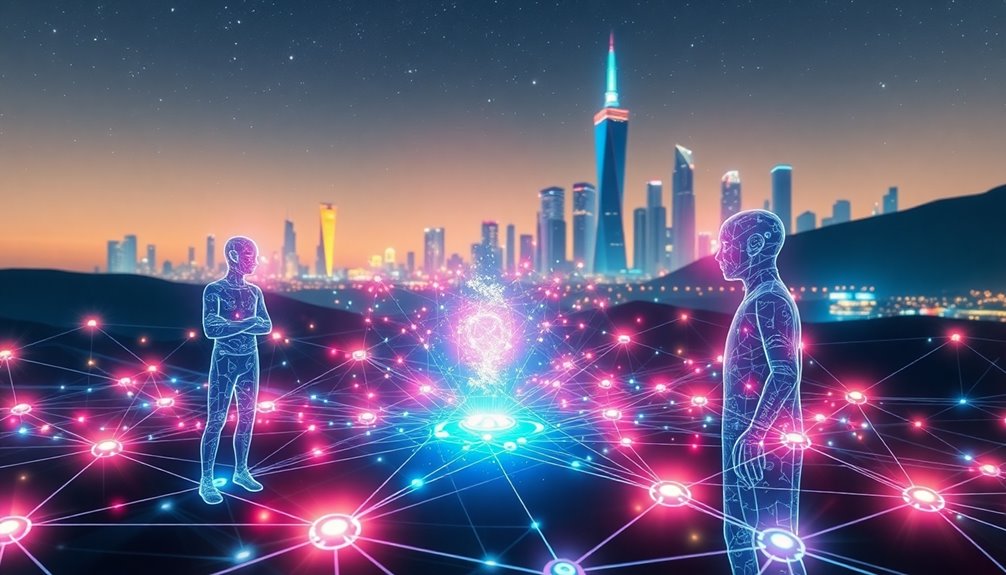When you think about the future of Web3, it's hard to ignore the potential of AI agents. They're not just tools; they're changing how you interact with decentralized applications. From personalizing your experience to optimizing governance in DAOs, AI agents could reshape everything. But are they truly the ultimate participants in this ecosystem? The implications of their integration could be profound, and you might want to consider what that means for the future of decentralized technology.

As the digital landscape evolves, AI agents are transforming the way we interact within Web3 ecosystems. These self-sufficient software systems execute complex tasks, enabling seamless, intelligent interactions across decentralized applications (dApps). You'll find AI agents managing DeFi portfolios, enhancing gaming experiences, and providing real-time support, making your engagement with the decentralized world more intuitive and efficient.
One of the standout applications of AI agents lies in financial management. Imagine having an AI agent assist you in managing your investment portfolio, making communal decisions, and optimizing your assets in real-time. This not only streamlines your financial interactions but also empowers you to make informed decisions based on data-driven insights. The anticipated growth of AI agents in enterprise systems indicates a shift towards more robust financial tools.
AI agents revolutionize financial management by optimizing investment portfolios and empowering informed decisions through real-time, data-driven insights.
In the gaming realm, AI agents personalize the experience by offering tailored recommendations, ensuring you maximize enjoyment and engagement as you navigate through your favorite dApps.
When it comes to Decentralized Autonomous Organizations (DAOs), AI agents play a pivotal role in governance and decision-making processes. They help facilitate discussions, manage resources, and optimize workflows, enhancing the overall efficiency of decentralized systems. By detecting anomalies and predicting risks, AI agents contribute to platform stability and security, giving you peace of mind as you explore various Web3 applications.
However, challenges remain in the development and integration of AI agents within Web3. Achieving enterprise-level reliability is difficult due to issues like latency, debugging complexity, and data privacy concerns. It's crucial for developers to address these hurdles during the design, development, training, testing, and deployment phases of AI agents.
Ensuring that these agents maintain functionality while integrating into existing products is essential to enhance user experience without overshadowing primary applications.
Despite these challenges, the advantages of AI agents in Web3 are compelling. They automate monotonous tasks and provide personalized experiences, increasing efficiency and accessibility for users. You can expect to see more innovative decentralized applications and services emerge as AI agents help businesses scale and optimize their operations.
Looking ahead, the future of AI agents in Web3 is bright. They'll play a key role in decentralized AI governance models, enhancing the overall ecosystem. As these agents evolve, they'll continue to break down barriers, making Web3 technologies more accessible and user-friendly.









